Google gets physical with first New York store
Google opens its first retail location in Manhattan's Chelsea neighbourhood. We spoke to Ivy Ross, the company’s vice president of hardware design, UX and research, who served as creative director of the store, to find out more about Google's move into physical retail
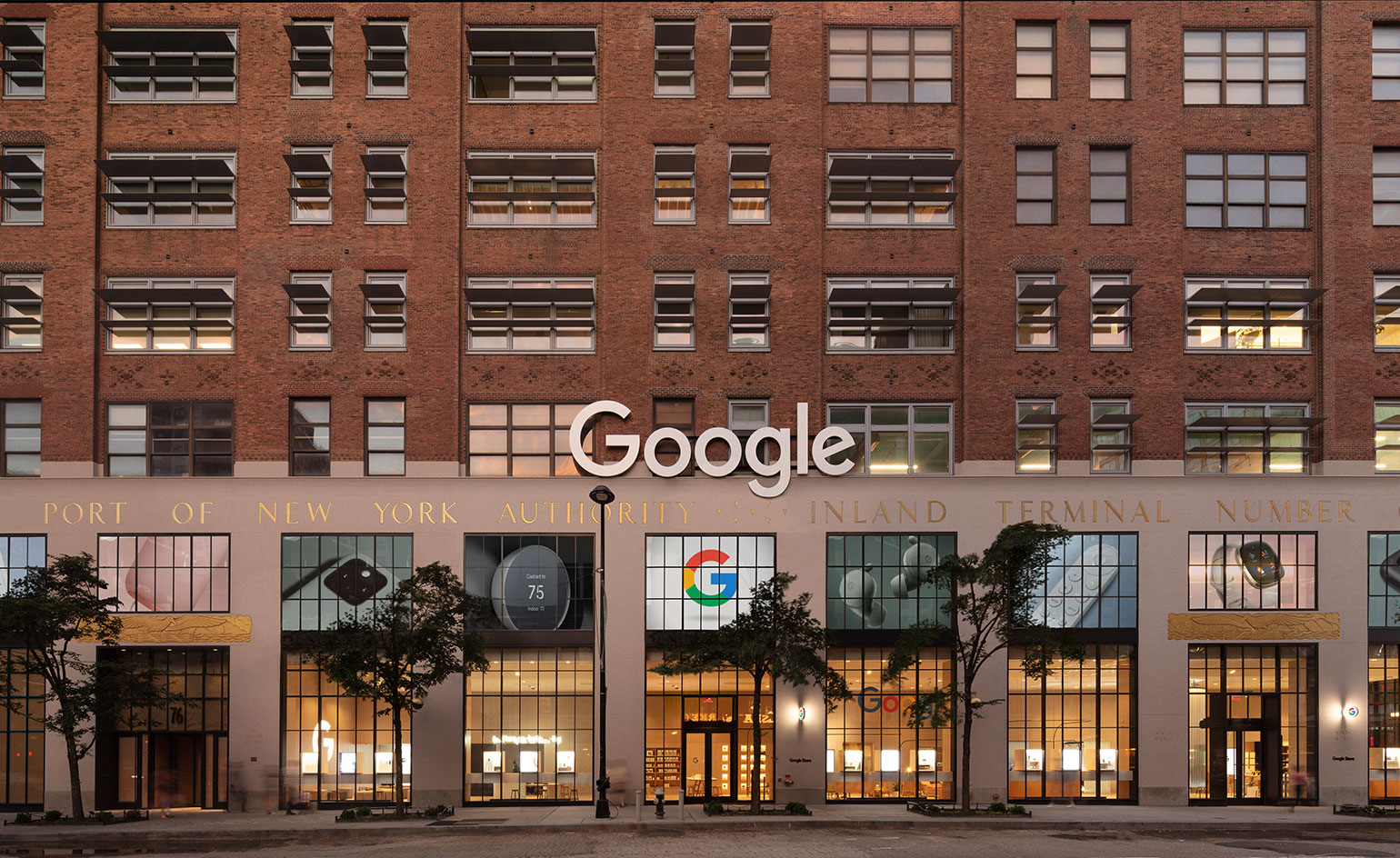
Google opened the doors to its first physical store, suitably located beneath its Manhattan headquarters in the Chelsea neighbourhood in New York City. Spanning a lively block of Ninth Avenue, the expansive retail space not only offers a holistic view of Google’s entire suite of consumer hardware, which ranges from its Pixel phones and Fitbit wearables to Nest Audio speakers, Stadia gaming consoles and Pixelbooks, it also provides a welcoming, yet in-depth snapshot of how all these products can work seamlessly together with Google’s other services.
‘You can learn about the products singularly online, but when you come to a physical space, one of the things you really want to understand, especially in a Google store, is that one plus one can equal four; what happens if I pair these things up?’ says Ivy Ross, the company’s vice president of hardware design, UX and research, and Wallpaper* Design Awards 2021 judge. ‘There are plenty of individual experiences, but we really thought long and hard about [bringing] offline and online together. People can come and just grab a box off the shelf and buy it, but what experience can we give them that they might not be able to understand well if you’re just shopping online.’
Google New York store: bringing experiences together
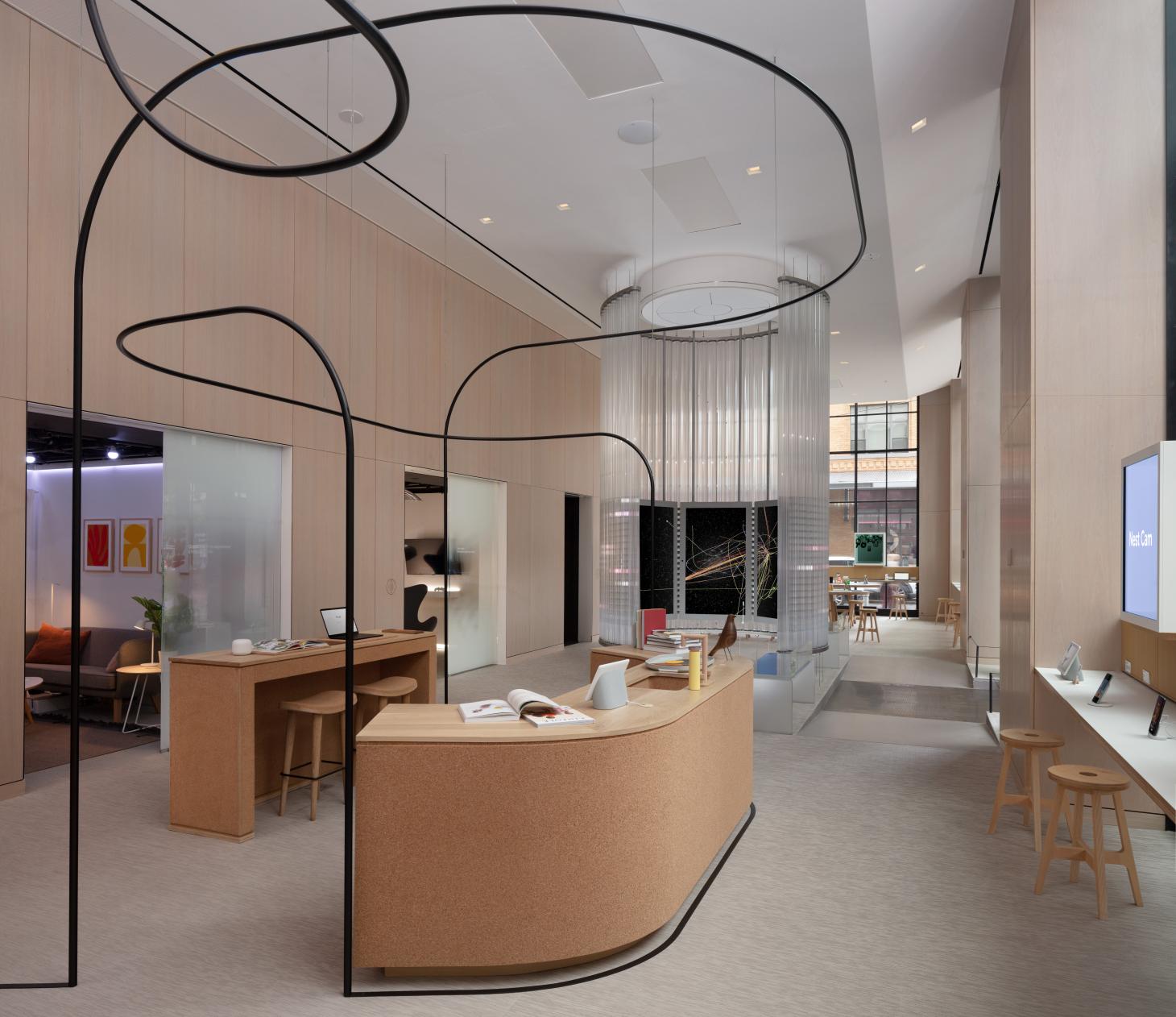
Fine-tuned using lessons learned from launching retail pop-ups since 2016, Google’s first store playfully brings together a range of experiences to appeal to a wide audience.
‘Google is a great learning organisation, so we really experimented to learn what works and what doesn’t work,’ Ross continues. ‘We observed where people spent most of their time, and they wanted these different experiences. We kicked off with a brainstorming with my team and marketing, and then with the architect Suchi Reddy, we mapped out the baseline of must-haves, like a ‘here to help’ desk, and added how we could make it feel special and feel Google. We really wanted to make it a discovery and almost have an exploratorium-feel. The idea was to make people feel at home and relaxed, not overstimulated but also curious.’
Google store interiors
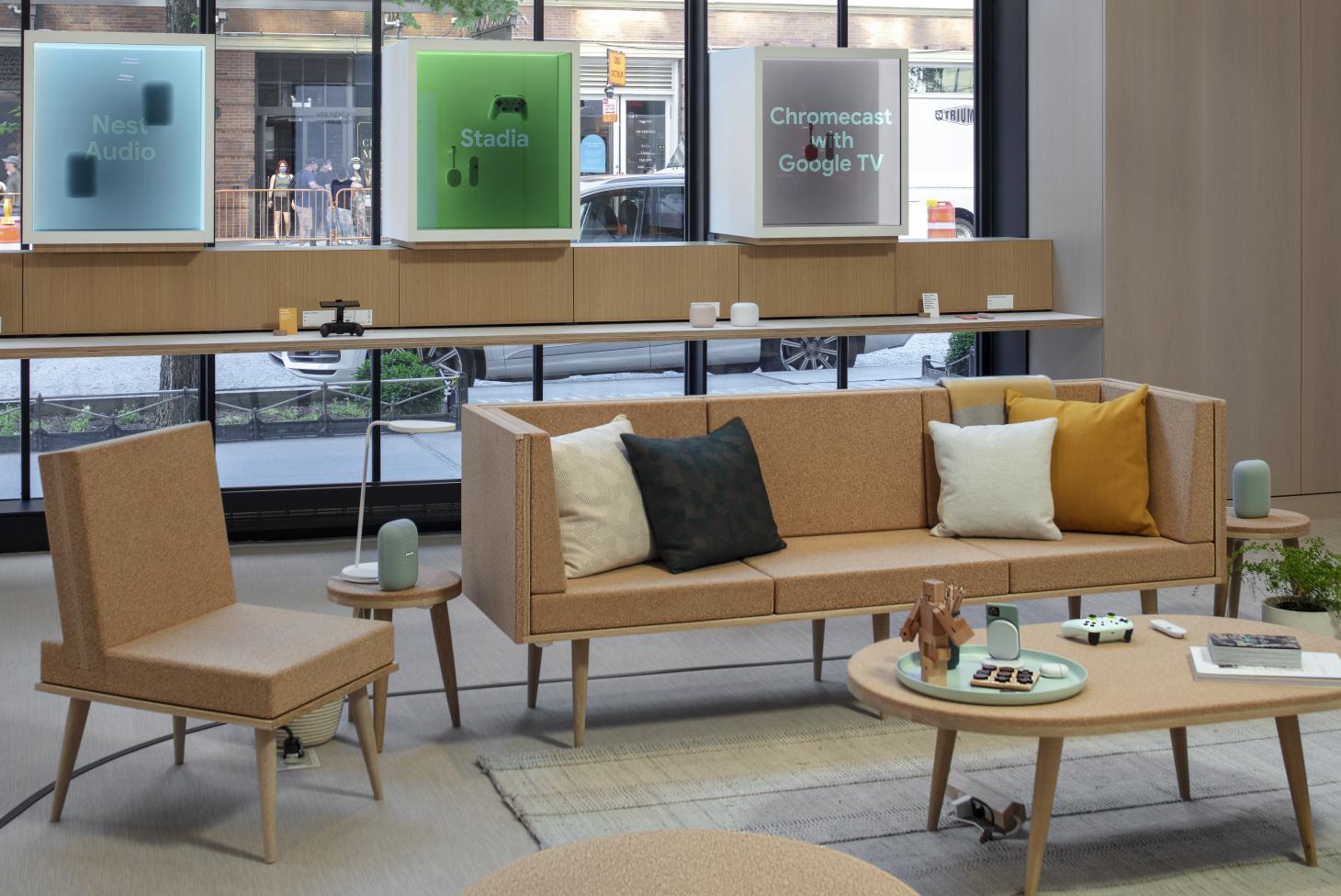
A display of interactive product-based Discovery Boxes, which allow visitors to better understand the inner workings of each product
As visitors enter the industrial glass-fronted space, they are met by an inviting, neutral interior constructed from tactile, natural materials. Sustainability is a key focus here, so much so that the space has been awarded a Leed Platinum certification. Some of the design details include wood veneer walls made from a responsibly sourced hickory, energy-efficient light fixtures and carbon neutral floor coverings by Interface that have been deployed throughout. Even the building processes and mechanical systems were put through rigorous assessment to reflect the company-wide commitment to sustainability. Cork, a sustainable and renewable material, has been incorporated into the shop’s furniture designed by Daniel Michalik, which creates the feel of an adaptable blank canvas that still exudes warmth and texture.
‘We specifically did that because we wanted it to be very neutral and anyone could project that it could be their space,’ Ross explains, while explaining the thinking behind the store’s so-called Sandboxes, where products are presented in real life scenarios. ‘We have a kitchen, living room and kids area that feature suggestions of furniture in the abstract. There are projections that simulate a day in the life of. You see the sun coming in through the window, there’s a knock on the door from someone dropping off a package and it prompts you on what to do in order to experience how the products go together.’
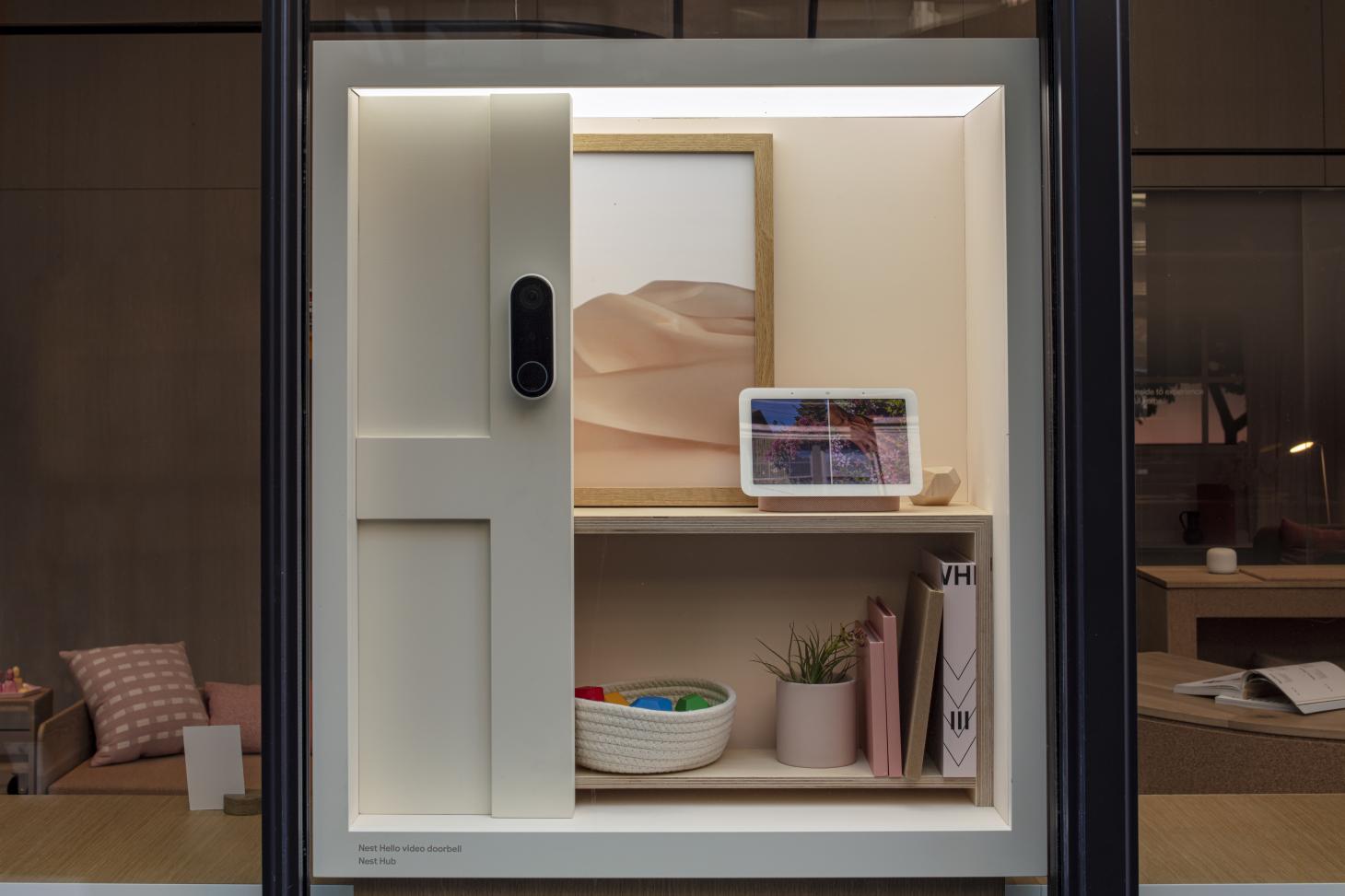
A detail of a Discovery Box featuring Nest’s hub and doorbell, viewed from the exterior storefront of Google’s retail space in Chelsea
Around the space’s periphery, interactive product displays known as Discovery Boxes feature animated visuals that enable visitors to understand the inner workings of each offering. Ross says, ‘In these spaces, you can get the layers of attributes of the product. It’s everything from individual functions to how three products might work together.’
In addition to an entire Nest product gallery wall (showcasing all 35 products) and a gathering space for teaching and events, the store also boasts a 17 ft tall circular glass structure that houses an Imagination Space made up of custom interactive screens. Opening with an exhibit designed around Google Translate, visitors can experience real-time translation of their speech into 24 languages and hear the results being whispered back to them.
‘There are some people who will immediately look for a salesperson and there are some people who will want to explore on their own. People have different learning styles and I wanted to make sure that you didn’t need to be assigned a salesperson to be able to start to play,’ Ross concludes. ‘It’s all about options and the good news is that all the things that people care about more since the pandemic, the store had embodied regardless. It’s the spirit in which we design the hardware. It’s human, it’s playful and it’s smart.’
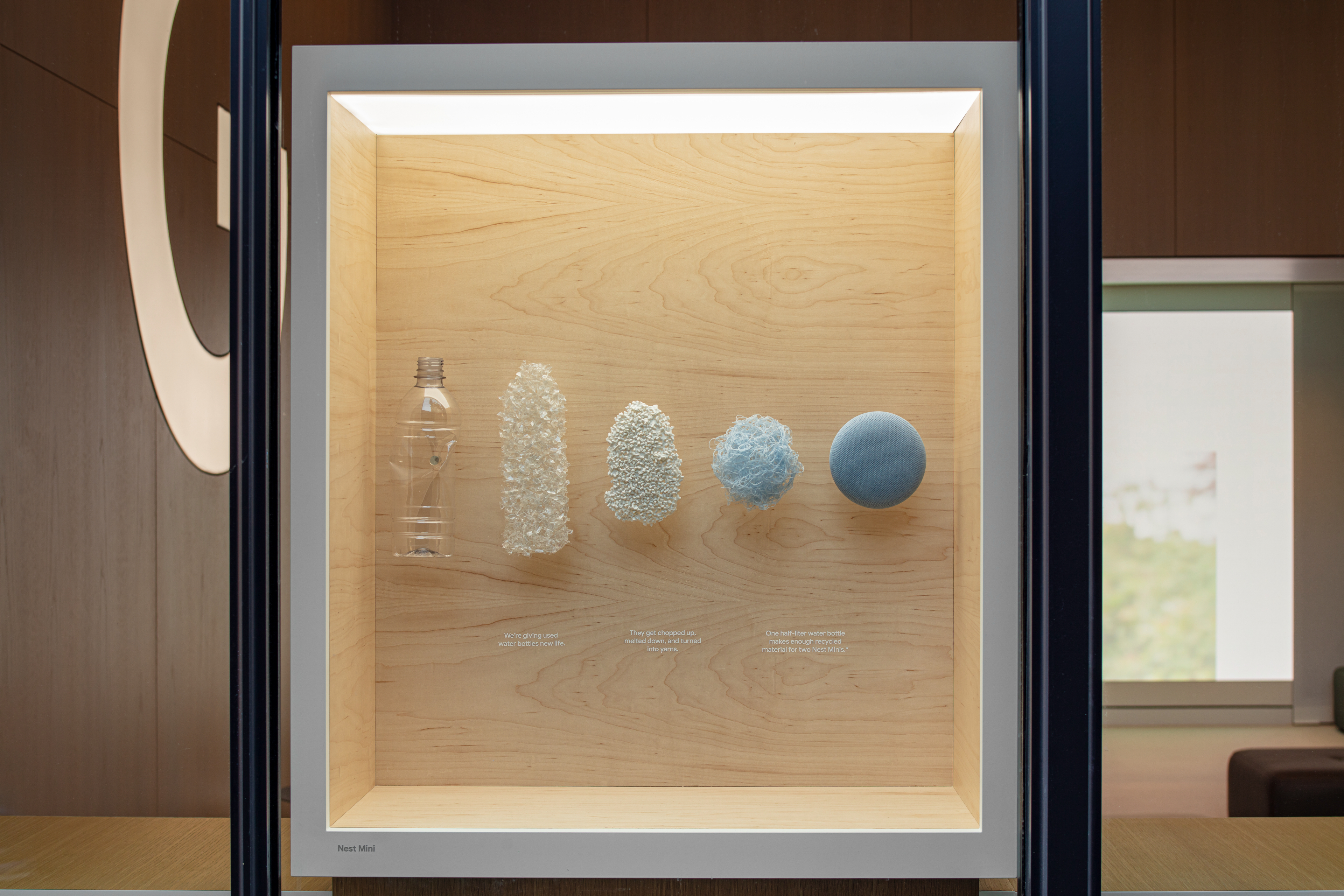
A ‘Discovery Box’ showing the sustainable process behind Google’s Nest Mini
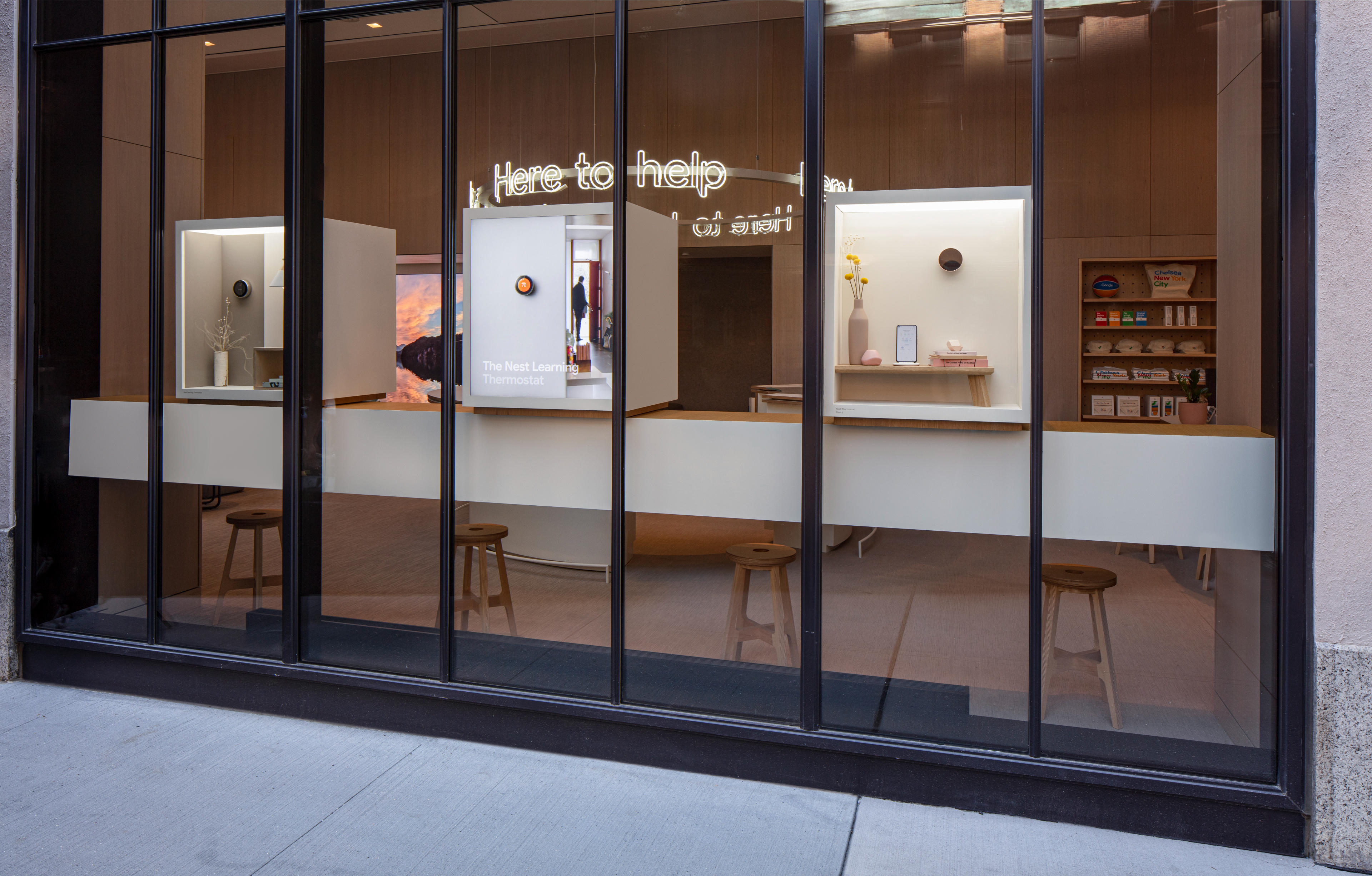
The store’s façade features tall windows for a peek inside
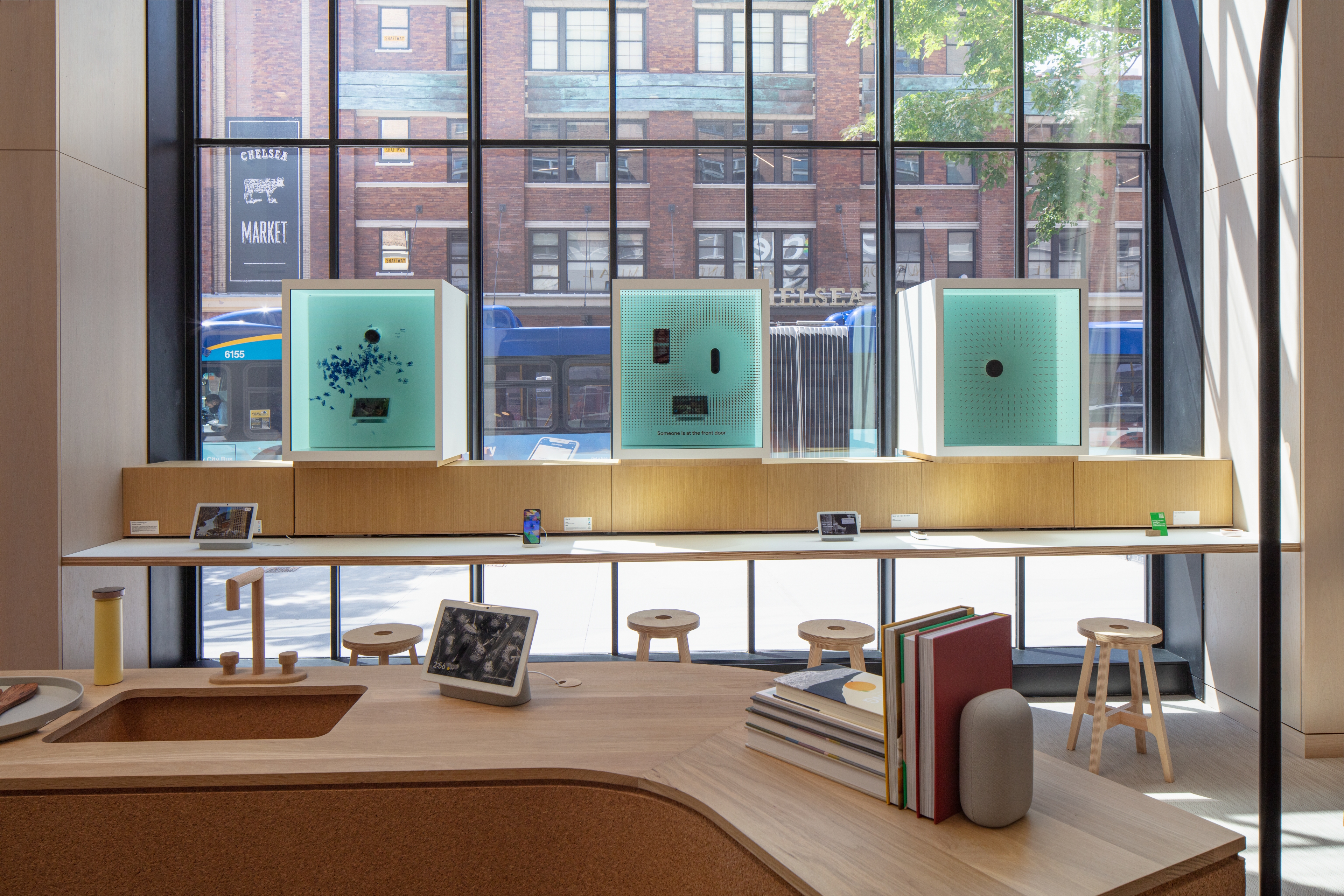
The warm and inviting interiors invite interaction with Google’s products
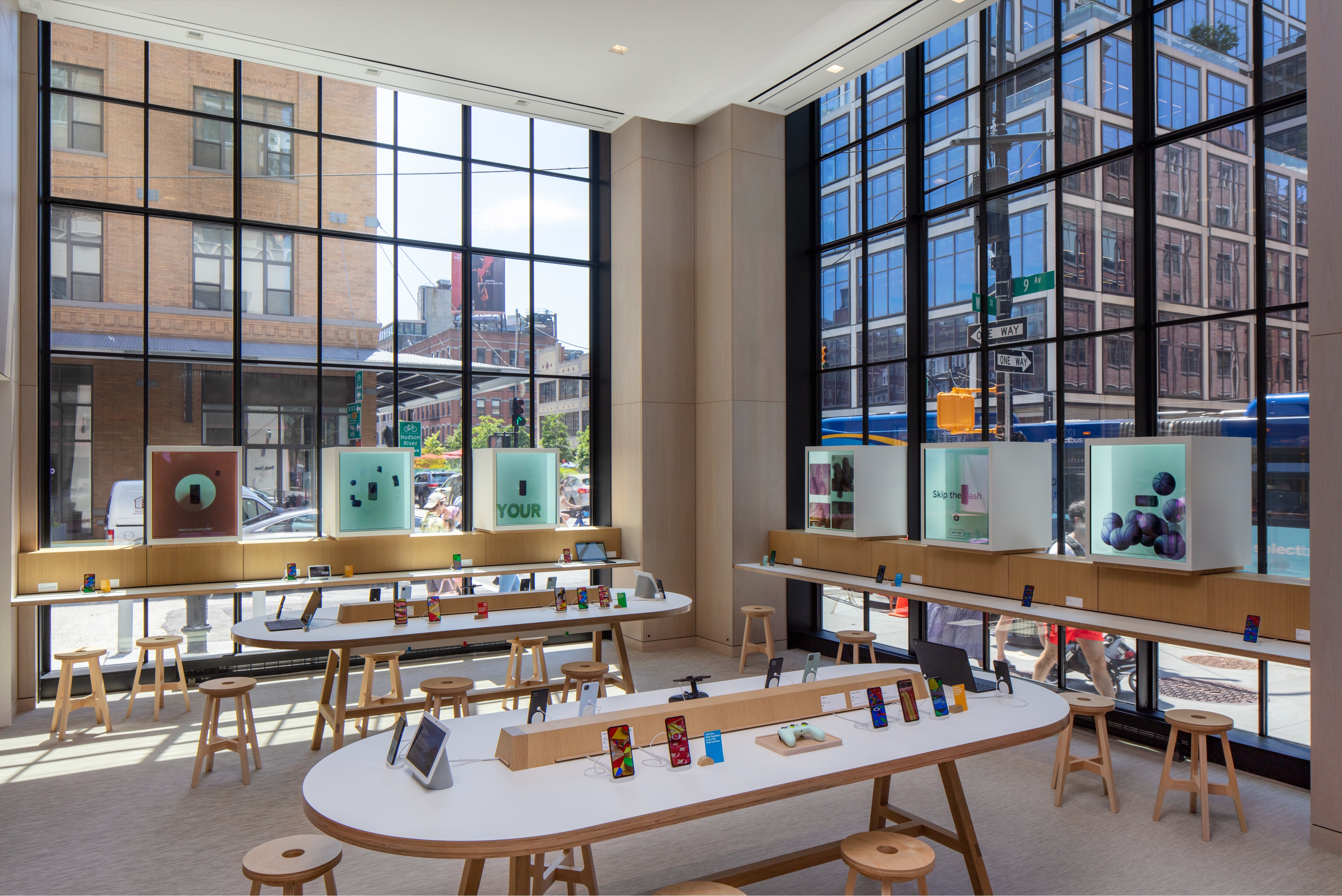
Each element of the display offers a peek into Google’s product universe
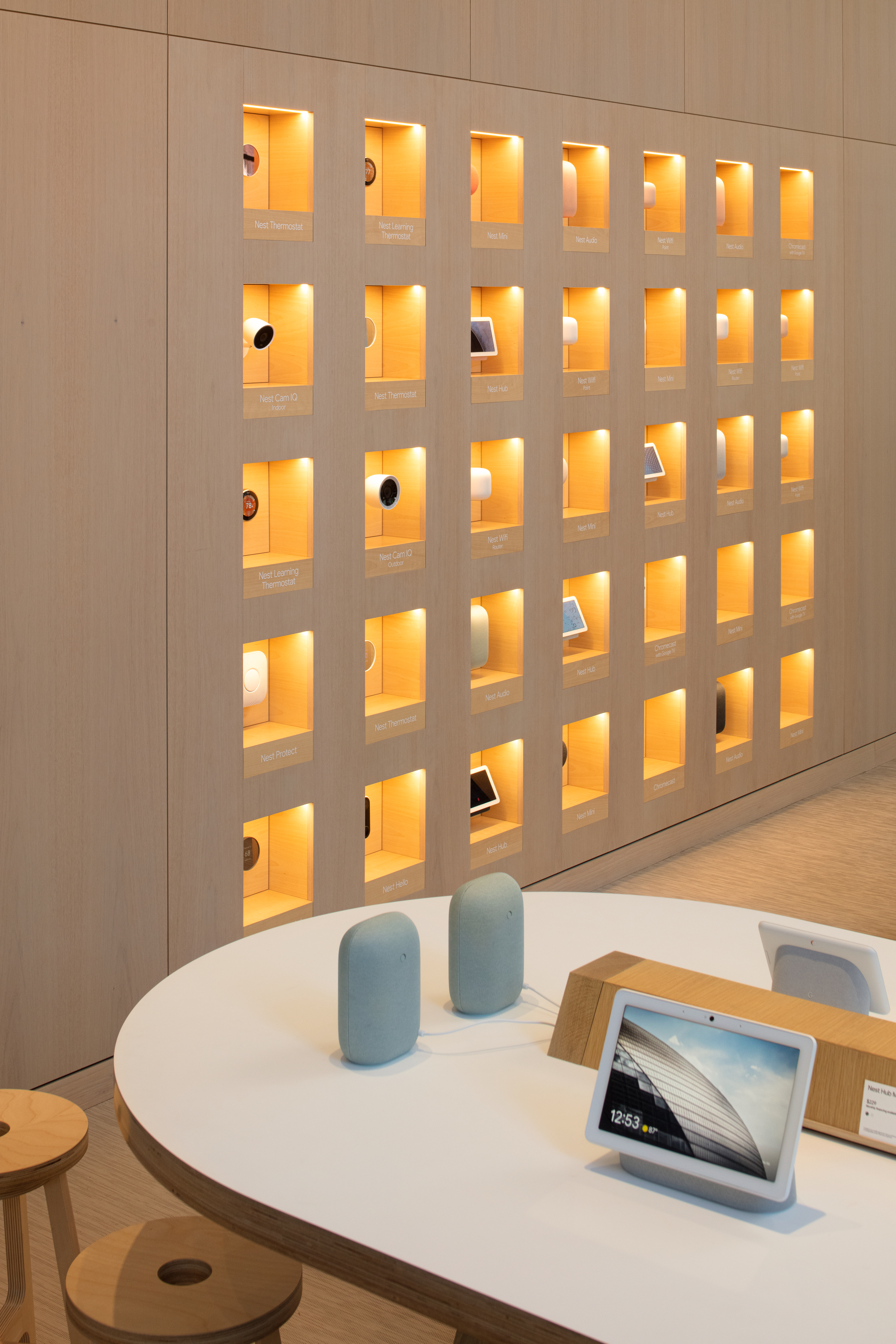
The Nest Gallery Wall, showing Google’s offering of 35 home products in one place
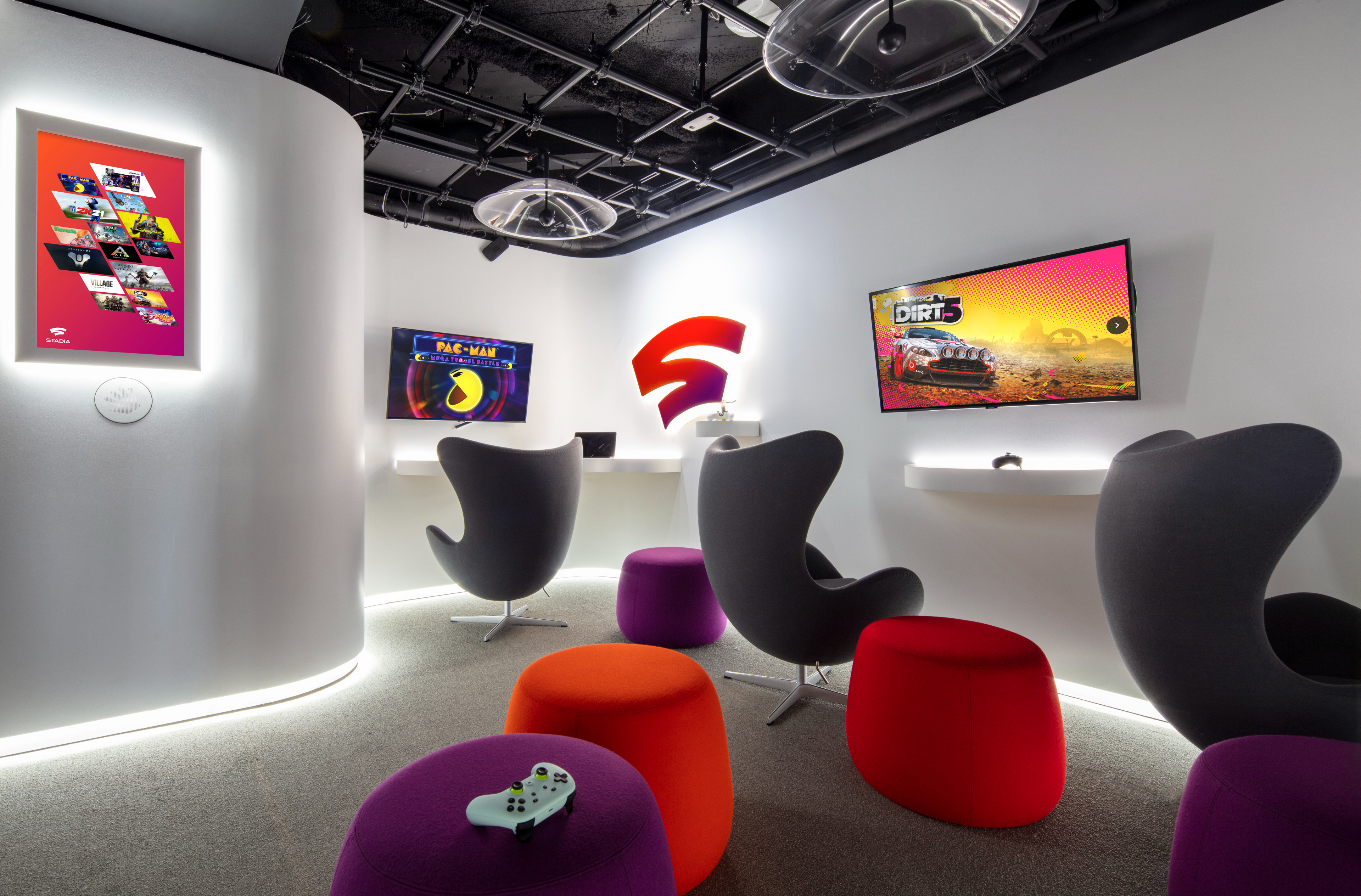
An example of Sandbox, experiential rooms that let customers try Google’s products in real-life scenatios
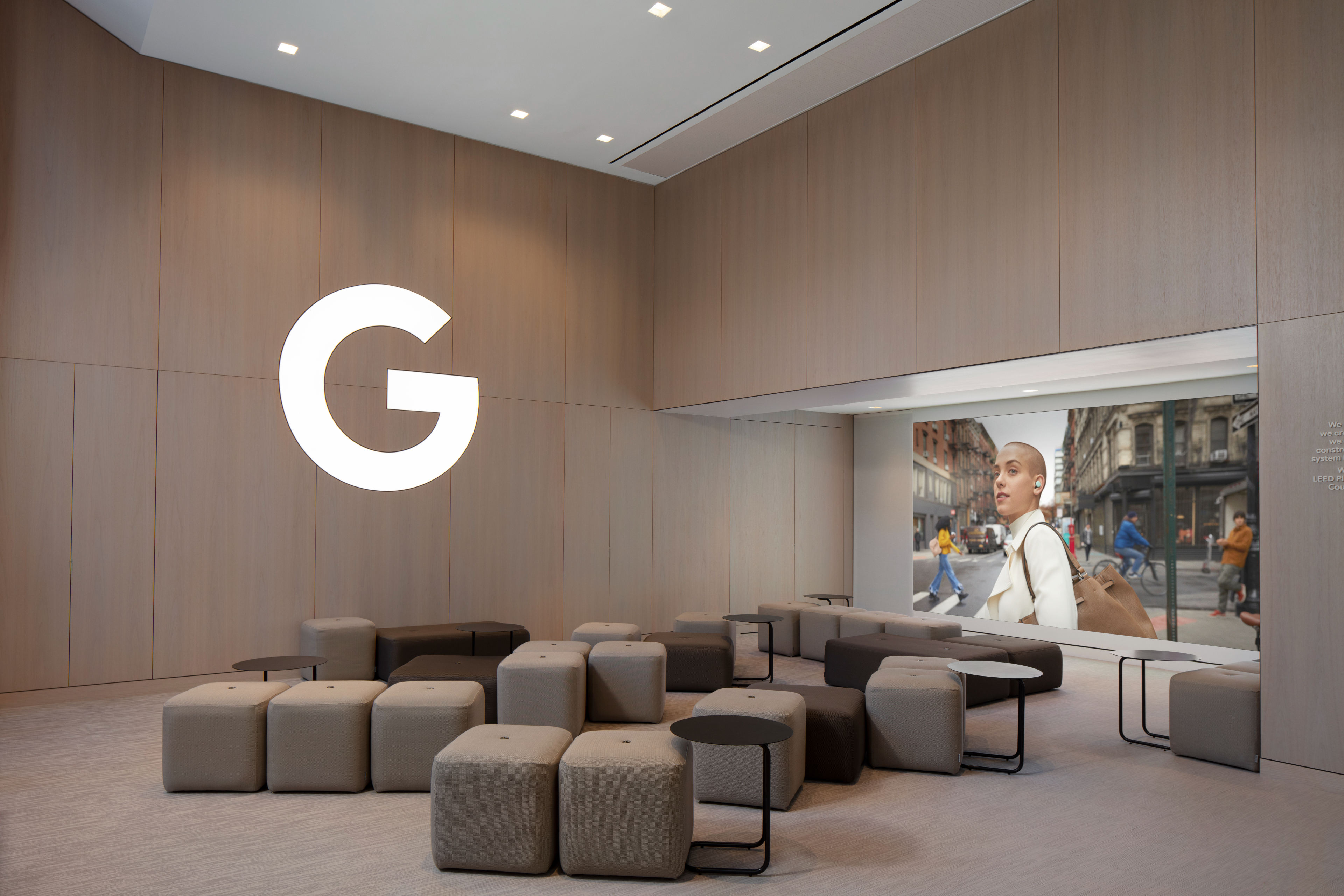
The Workshop space
INFORMATION
For more information, visit the Google Store website
ADDRESS
Receive our daily digest of inspiration, escapism and design stories from around the world direct to your inbox.
Google
76 Ninth Avenue
New York, New York
Pei-Ru Keh is a former US Editor at Wallpaper*. Born and raised in Singapore, she has been a New Yorker since 2013. Pei-Ru held various titles at Wallpaper* between 2007 and 2023. She reports on design, tech, art, architecture, fashion, beauty and lifestyle happenings in the United States, both in print and digitally. Pei-Ru took a key role in championing diversity and representation within Wallpaper's content pillars, actively seeking out stories that reflect a wide range of perspectives. She lives in Brooklyn with her husband and two children, and is currently learning how to drive.
-
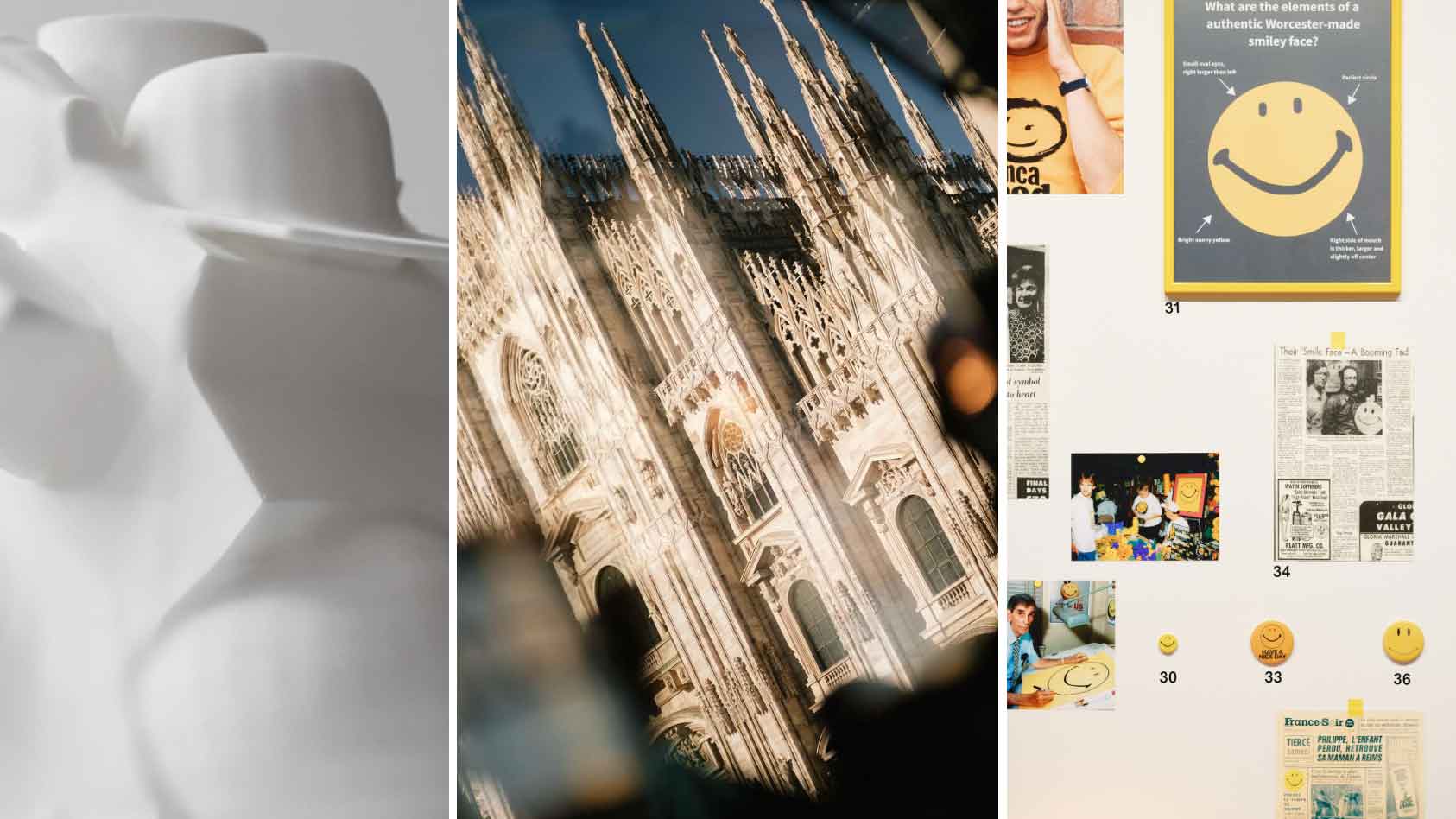 We asked six creative leaders to tell us their design predictions for the year ahead
We asked six creative leaders to tell us their design predictions for the year aheadWhat will be the trends shaping the design world in 2026? Six creative leaders share their creative predictions for next year, alongside some wise advice: be present, connect, embrace AI
-
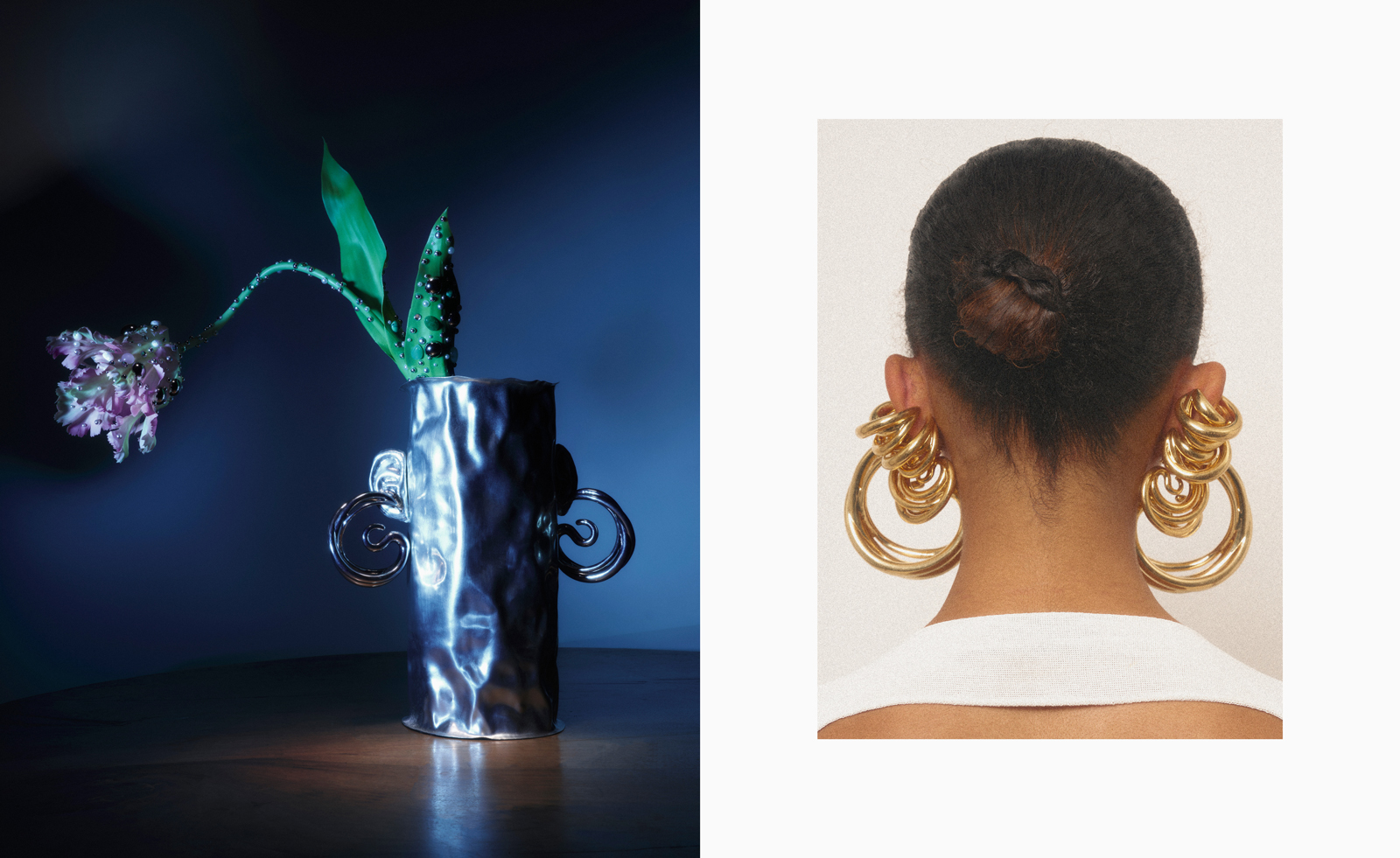 10 watch and jewellery moments that dazzled us in 2025
10 watch and jewellery moments that dazzled us in 2025From unexpected watch collaborations to eclectic materials and offbeat designs, here are the watch and jewellery moments we enjoyed this year
-
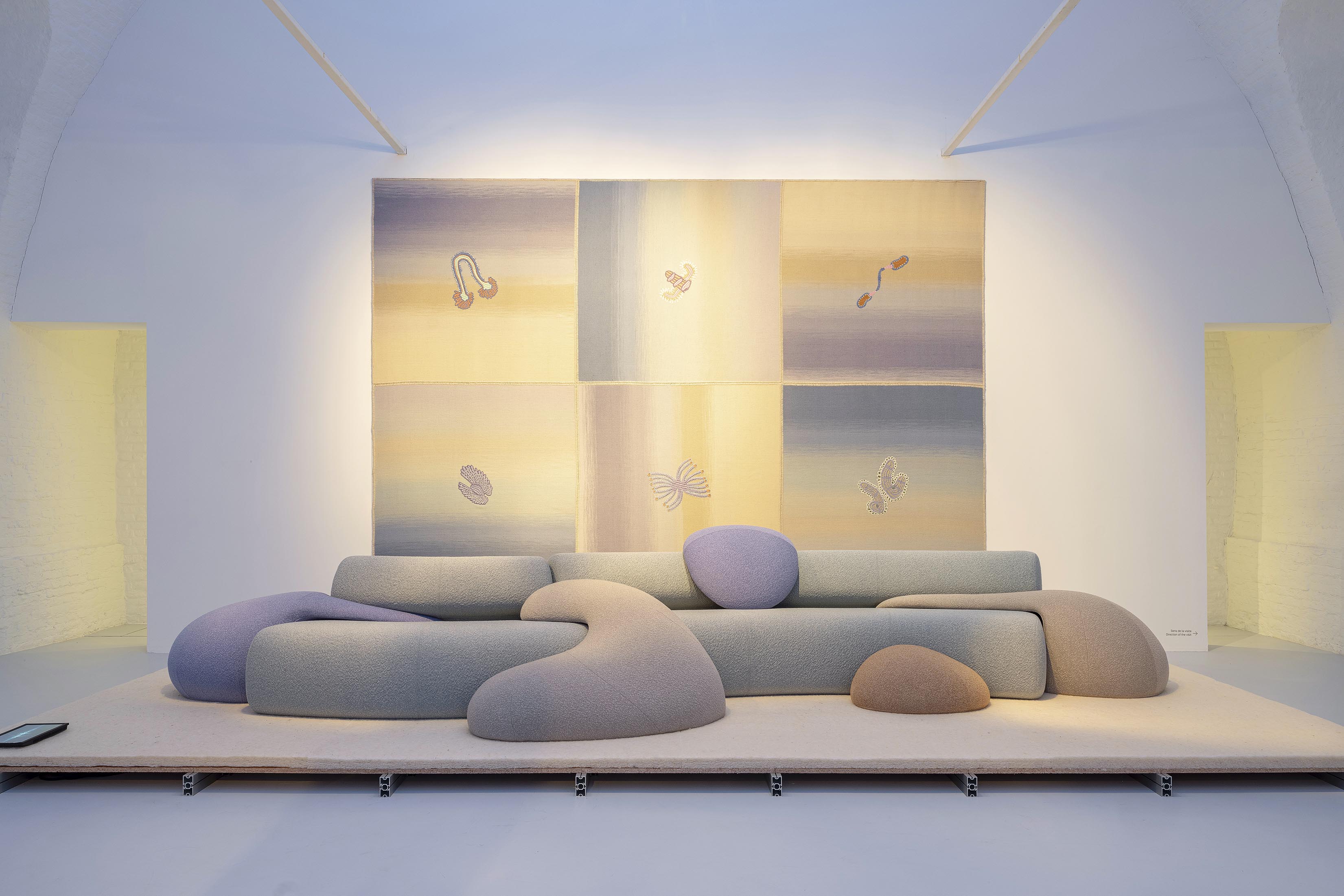 Patricia Urquiola reveals an imaginative inner world in ‘Meta-Morphosa’
Patricia Urquiola reveals an imaginative inner world in ‘Meta-Morphosa’From hybrid creatures and marine motifs to experimental materials and textiles, Meta-Morphosa presents a concentrated view of Patricia Urquiola’s recent work
-
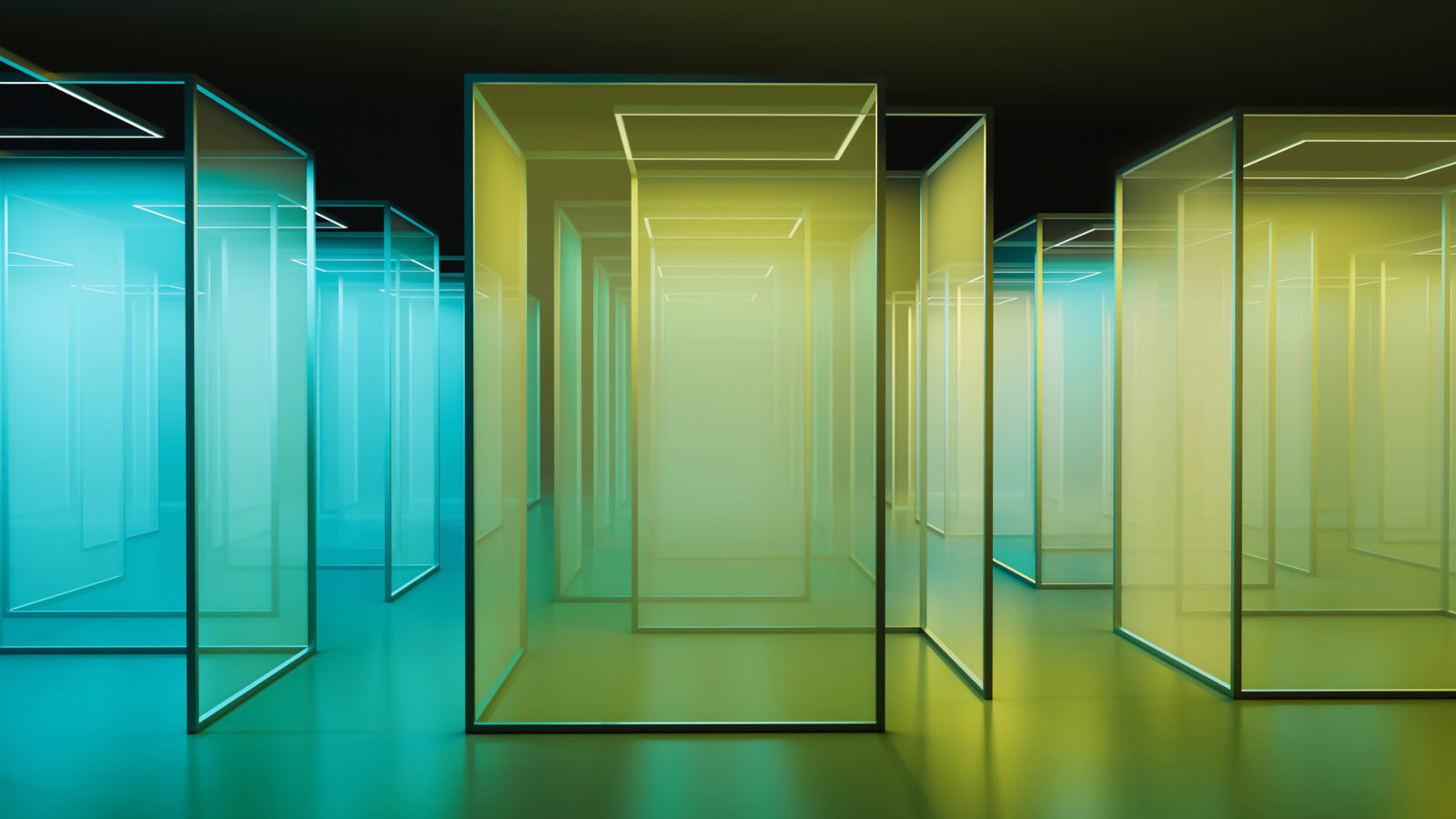 Google and Chromasonic make sense of colour at Milan Design Week
Google and Chromasonic make sense of colour at Milan Design WeekGoogle's interactive installation in collaboration with Chromasonic demonstrates how colour influences our perception of the world
-
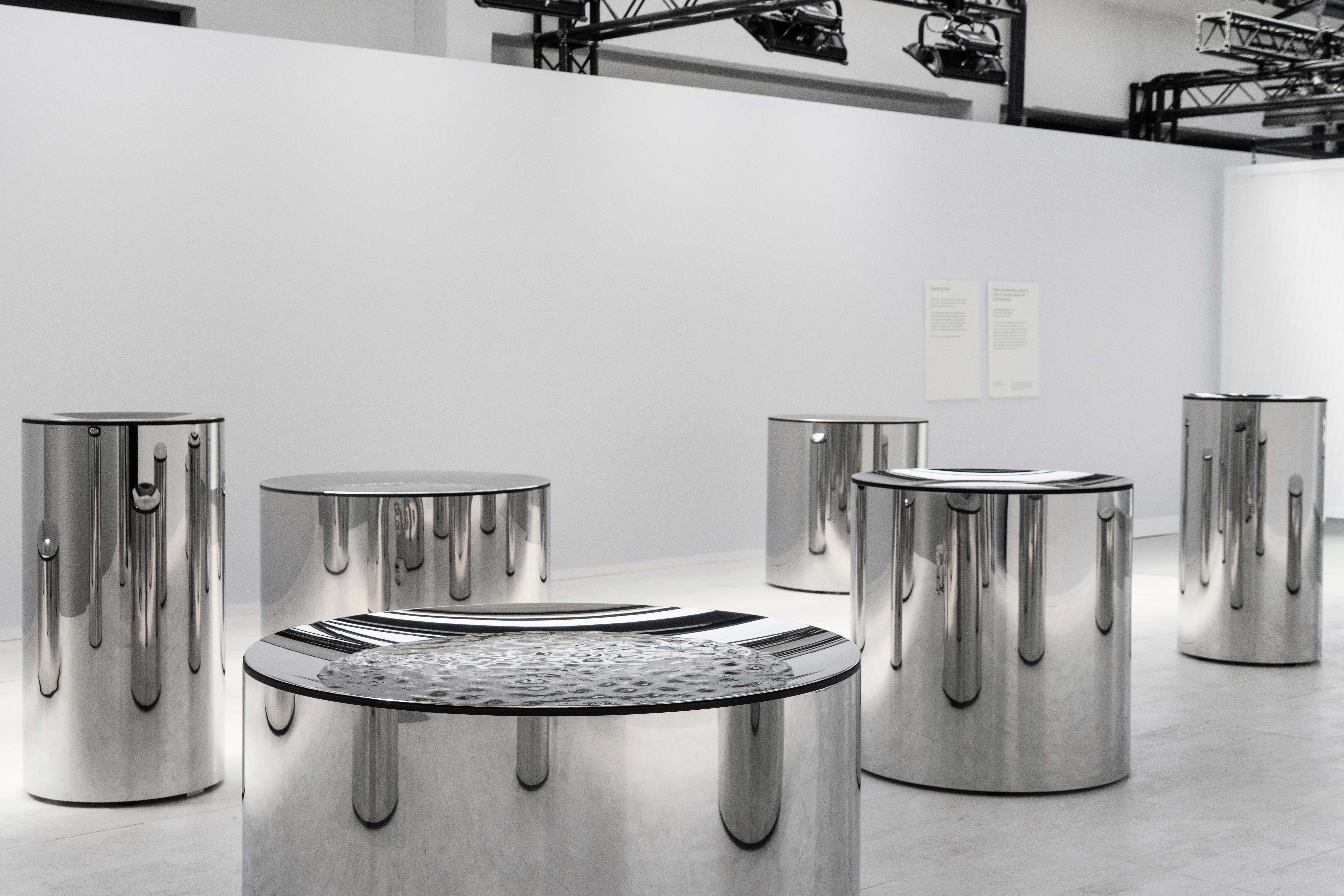 Google Design Studio celebrates the relationship between water and technology
Google Design Studio celebrates the relationship between water and technologyAt Milan Design Week 2023, ‘Google Shaped By Water’ is an immersive and intimate sensorial installation by Lachlan Turczan that puts water, light and human beings in resonance
-
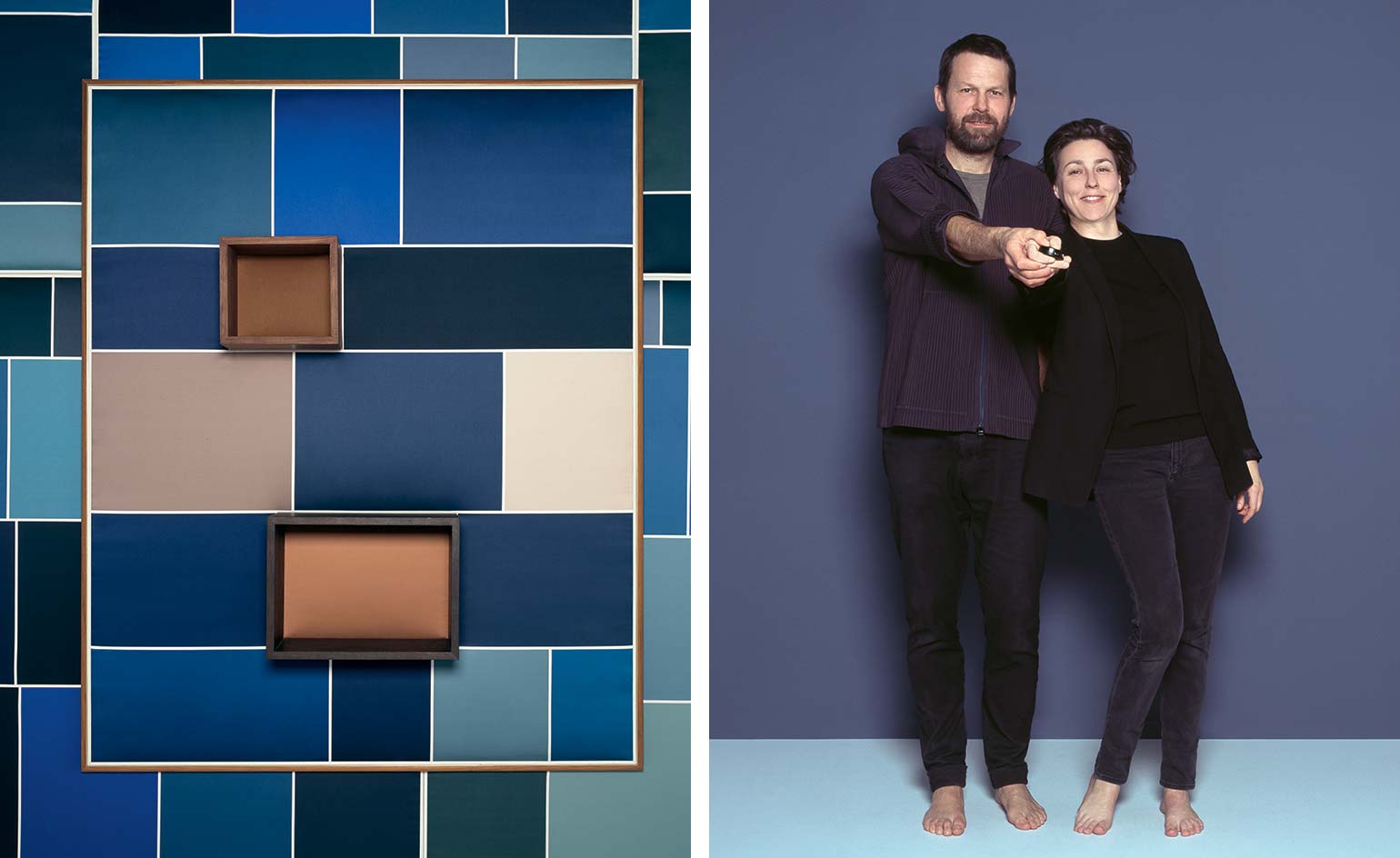 True blue: for textile brand Dedar, a creative duo render master artists’ work in a new hue
True blue: for textile brand Dedar, a creative duo render master artists’ work in a new hue -
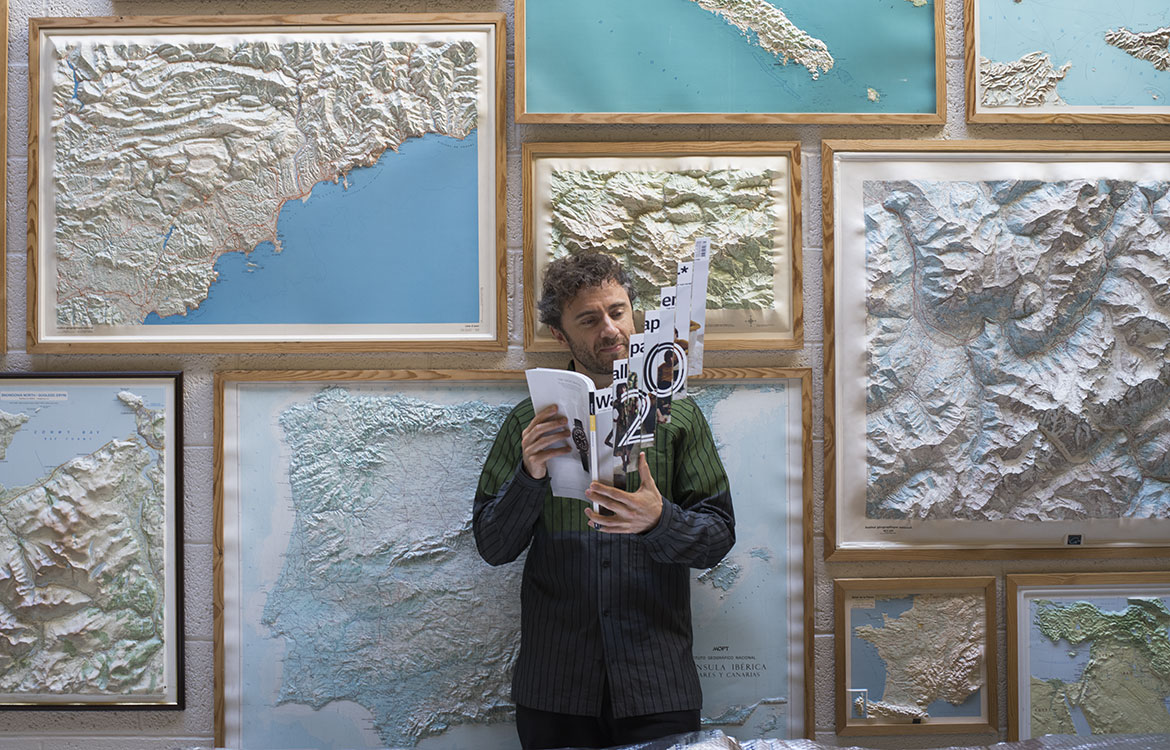 Game-Changers: we pick our top 20 creative world-rockers
Game-Changers: we pick our top 20 creative world-rockersIn 20 remarkable years we have come across, written about, examined and exhumed a lot of remarkable people. On the following profiles are 20 of them. This, though, is not a simple ranking of power and influence. These are stories that resonate, with which we find common purpose and cause. Here are people who have sometimes stuck bloody-mindedly to a course, sometimes pivoted, re-examined and pushed in new directions, who have defied expectations and even open derision. They have shown courage under fire and grace under pressure. They have transformed – from girl group popette to one of the fashion industry's smartest operators, for instance – and, over the last 20 years, have had a transformative influence in their field. Here are architects who build with a sense of the immaterial, artists who want to talk to everyone, experimentalists and food engineers, fashion designers who defy fashion and bob and weave like prize fighters, tech titans who have changed the way we do almost everything. One reinvented the hotel industry, another presents it with an existential threat. There is also a man who wants to save the world – or take us all to Mars if that doesn't work out. Either way, we'll be along for the ride.
-
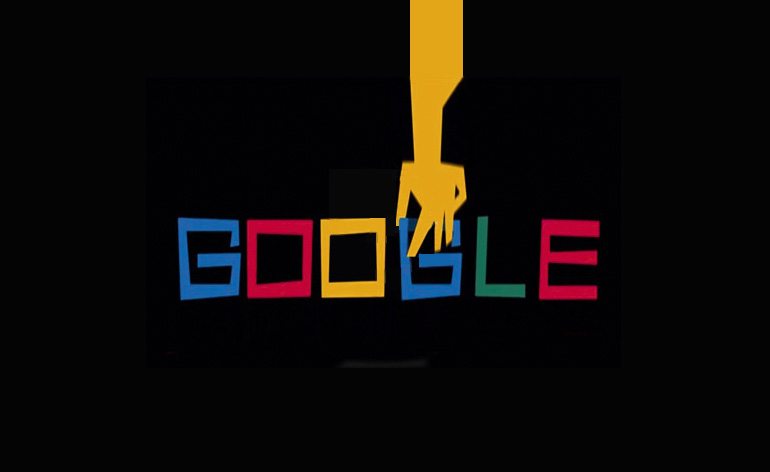 Google’s doodle tribute to graphic designer Saul Bass
Google’s doodle tribute to graphic designer Saul Bass